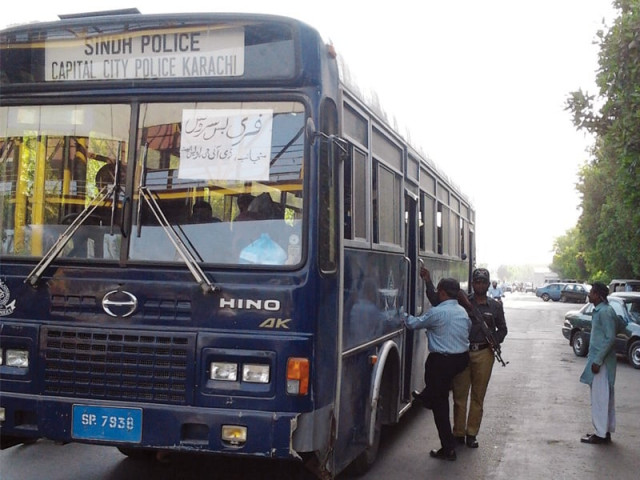
A police bus pulls up and a man in uniform with a big, fat shotgun gets off. “Please, come,” he says to the terrified clutch of people by the road side. “It’s a free police shuttle service.”
After the initial fear and confusion wore off, people were delighted. “We have always seen and heard of the police taking from people, but they were great today,” said Nasir Zia, a resident of Gulistan-e-Jauhar who works in Saddar. He was one of the unlucky people stuck on Tuesday as public transport went on strike over CNG prices. “Whatever is said and done, at least today we all felt compassion towards the police,” he remarked.
With the ‘free bus service’ placard pasted on the windscreen, the blue police buses went around Karachi’s district east to offer their services to the public. The Sindh police logo was printed on the vans and coasters, each carrying an armed driver, cleaner and guard in uniform.
The service not only picked passengers from bus stops but the police onboard went to people, asking them to use the free service. Surprise, worry and fear were the initial reactions – no one had heard of it before.
As the day went on and the word spread, a large number of people hopped on. The passengers appreciated the effort and asked the police to continue. “The effort to provide public transport is so unexpected that I am still having a hard time believing it,” said Imran Ahmed on the bus. “For the first time I feel secure while travelling and why wouldn’t I when I’m being accompanied by policemen.”
Happy to serve
At least two 60-seat vans and four 30-seat coasters travelled from Safoora Chowrangi to Numaish and from Quaidabad to Gora Qabristan. The district east police station mobile units and vehicles were also directed to offer people a ride. Around 2,000 passengers had reportedly used the shuttle service by evening.
The armed cleaner, guard and driver in each shuttle started work at 8 am. By 4 pm they had completed three rounds of their routes and were scheduled to work till nighttime. The policemen took a half hour lunch break around 4pm at the DIG East office and enjoyed their biryani before heading back to the road.
Although the policemen were not offered extra pay or allowances, they were more than happy to do the work. The policemen with shuttles were called from the Saudabad police headquarters reserve.
“Serving people in such a way, which is set apart from routine work, is very satisfying,” said driver Amjad Ali, who joined the force 16 years ago. “Initially, the response was bad but by noon, people started using the shuttles.”
DIG East Captain (retd) Tahir Naveed was the brains behind the plan. He admitted that the level of response from the people was low but this did not faze him as it was the first time.
“It takes time for people to understand the concept at the first go,” he told The Express Tribune. “But I hope that next time it would not only be the East police, instead all police forces of Karachi would take the same initiative and then people will approach us themselves.”
The service might not have been enough as thousands of people use public transport daily. The police could, however, help 10% of commuters.
Even Karachi Transport Ittehad chief Irshad Bukhari, who called the strike, appreciated the police work. And that, is also a first.
“The aim of the strike to force the government to revive its decision and apply the previous prices of diesel, petrol and CNG,” said Bukhari, the chief of the Karachi Transport Ittehad (KTI), the body that represents transporters in the city who called the strike on April 3.
Public transport, which is mostly privately operated, was not available and people could not make to their workplaces in time. The English Matric exam had to be put off.
“A single-day strike affects our daily routine as we are paid on a daily basis. I have to borrow money every time we go on strike,” said driver Abdul Azeem at a bus stand in Keamari. “If this vehicle runs on the road I am paid, otherwise not, but we are forced to go on strike.” CNG prices are almost the same as diesel’s, he said, quoting Rs1,000 in daily costs.
with additional input from Sohail Khattak
Published in The Express Tribune, April 11th, 2012.




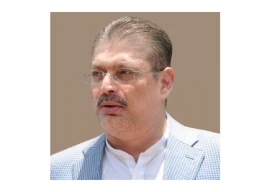

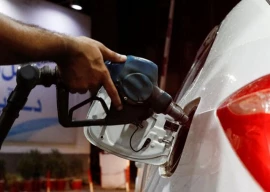
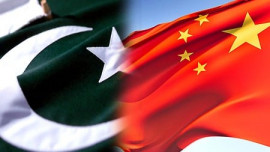
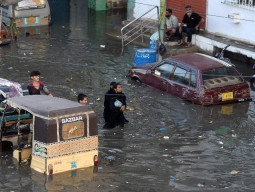
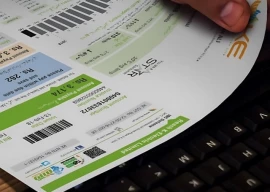
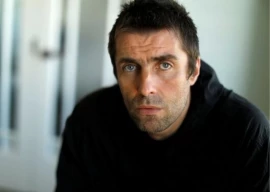
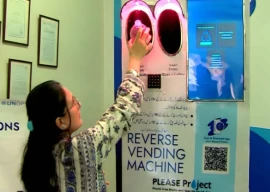





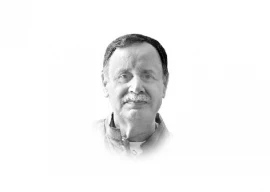
COMMENTS
Comments are moderated and generally will be posted if they are on-topic and not abusive.
For more information, please see our Comments FAQ